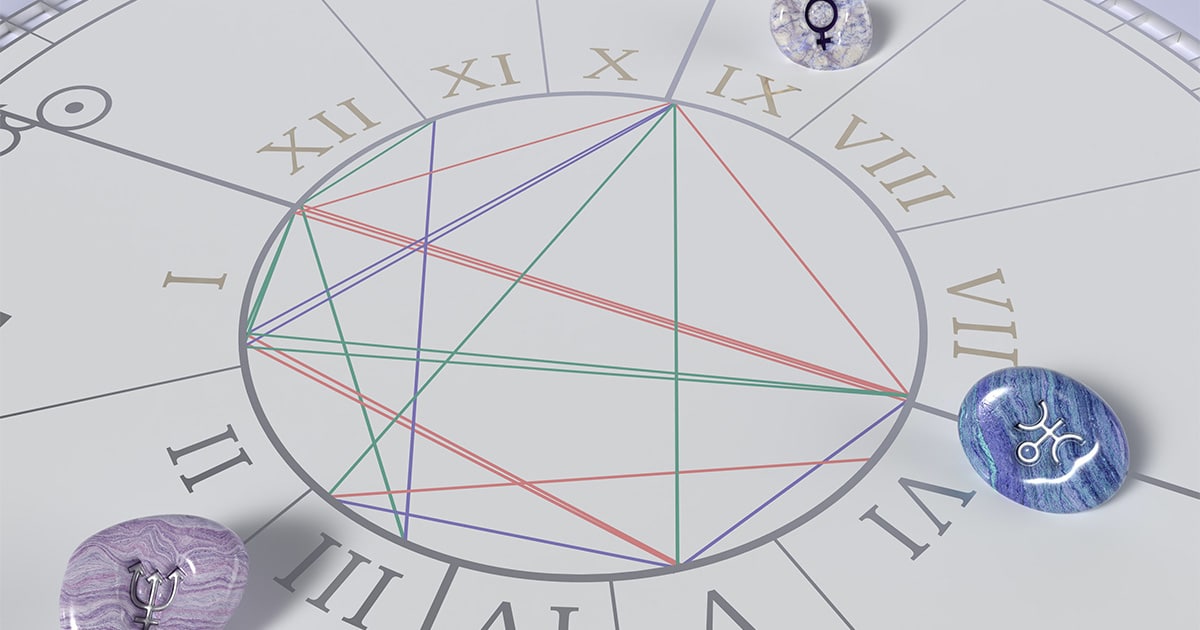Astrology has been a topic of fascination for centuries, with its ability to provide insights into our personalities, relationships, and even the future. But as we delve deeper into this mystical practice, a question arises: is astrology a religion? While some may argue that it is merely a pseudoscience or a form of entertainment, others believe that astrology encompasses spiritual beliefs and practices akin to a religion. In this blog post, we will explore the roots of astrology, examine its similarities and differences with traditional religions, and delve into the reasons why some consider astrology as a religion. Additionally, we will also address the critiques and counterarguments surrounding this topic. So, let’s embark on this journey to unravel the complex relationship between astrology and religion.
Understanding Astrology: Definition and Background
Astrology, at its core, is the study of celestial bodies and their influence on human behavior and events. It is based on the belief that the positions and movements of planets, stars, and other celestial objects can provide insights into various aspects of human life.
The origins of astrology can be traced back to ancient civilizations such as the Babylonians, Egyptians, Greeks, and Chinese. These cultures observed the patterns and movements of celestial bodies and developed systems to interpret their meanings.
Throughout history, astrology has evolved and adapted to different cultural contexts. In the Western world, astrology is primarily based on the zodiac, which divides the sky into twelve equal sections known as “signs.” Each sign is associated with specific personality traits and characteristics.
Astrology also incorporates various elements such as the placement of planets within signs and houses, aspects between planets, and the use of birth charts or horoscopes. These factors contribute to the unique interpretations and predictions provided by astrologers.
Interested in Tarot? Try our free tools and calculators.
It is important to note that astrology is not considered a science in the conventional sense. While it utilizes astronomical observations, its principles and methods are not supported by empirical evidence or the scientific method.
Despite its non-scientific nature, astrology has gained popularity and continues to have significant cultural and personal significance for many individuals. It has become a part of popular culture, with horoscopes frequently found in newspapers, magazines, and online platforms.
In the next sections, we will delve into the historical roots of astrology and explore its relationship with religion. By examining its origins and development, we can gain a better understanding of how astrology has shaped human beliefs and practices over time.

Exploring the Roots of Astrology
Astrology has deep roots that can be traced back to ancient civilizations. Understanding its historical development is crucial to comprehending its significance and potential religious connotations. In this section, we will explore the origins and evolution of astrology, focusing on the contributions of the Babylonians, Greeks, and its transformation in the modern era.
Babylonian Beginnings
The Babylonians, who inhabited Mesopotamia (modern-day Iraq) around 2,000 BCE, played a pivotal role in the development of astrology. They were skilled astronomers who observed celestial phenomena and believed that the movements of the heavenly bodies influenced human affairs. The Babylonians created the zodiac, dividing the sky into twelve equal parts and assigning specific meanings to each section.
Greek Influence and Expansion
The ancient Greeks adopted and expanded upon Babylonian astrology, incorporating their own philosophical and religious beliefs. Greek scholars such as Ptolemy and Hipparchus made significant contributions to astrology, refining its principles and developing a more systematic approach. Astrology became intertwined with Greek mythology, with each planet associated with a specific deity.
Astrology in the Modern Era
During the Renaissance period, astrology experienced a resurgence in Europe. Influenced by the works of ancient Greek and Roman astrologers, scholars sought to revive and reanalyze astrological teachings. However, with the rise of scientific thinking and the Enlightenment, astrology began to lose its credibility as a scientific discipline.
Despite skepticism from the scientific community, astrology continues to thrive in the modern era. It has undergone various transformations, incorporating psychological and spiritual elements. Today, astrology is accessible to a wider audience through books, websites, and personalized horoscopes.
By examining the historical development of astrology, we gain insights into how it has evolved over time and its potential influences on religious and spiritual beliefs. In the next sections, we will delve deeper into the relationship between astrology and religion, exploring their differences, similarities, and the reasons why astrology is sometimes considered a religion.

Astrology Versus Religion: Differences and Similarities
Astrology and religion are two distinct concepts, yet they share some common elements and can overlap in certain aspects. In this section, we will explore the differences and similarities between astrology and religion, shedding light on their unique characteristics.
Definition of Religion
Religion is a complex and multifaceted concept that varies across cultures and individuals. It typically involves a belief in a higher power or powers, rituals, moral codes, and a sense of purpose or meaning in life. Religions often have sacred texts, organized institutions, and designated places of worship.
How Astrology Differs from Religion
Astrology, on the other hand, is not considered a religion in the traditional sense. It lacks many key elements that define religion, such as worship of deities or a central divine figure, organized institutions, and religious texts. Astrology primarily focuses on the interpretation of celestial bodies and their influence on human life, rather than spiritual or moral teachings.
Interested in Tarot? Try our free tools and calculators.
Shared Aspects between Astrology and Religion
Despite the differences, astrology and religion can share some similarities. Both can provide individuals with a sense of meaning, purpose, and guidance in life. They both seek to understand and explain the mysteries of the universe and human existence. Additionally, astrology and religion can both offer a sense of connection to something greater than oneself, whether it be the divine or the cosmic forces.
It is important to note that while astrology may have some aspects that resemble religious practices, it does not encompass the comprehensive framework of religious systems. The fundamental differences lie in the core beliefs, rituals, and organizational structures that define religion, which astrology does not possess.
In the next section, we will delve into the reasons why some individuals consider astrology as a religion, exploring the belief systems, spiritual aspects, and universal language that astrology offers.

Why Some Consider Astrology as a Religion
While astrology may not fit the traditional definition of a religion, some individuals perceive it as such due to various reasons. In this section, we will explore the factors that contribute to the perception of astrology as a religion, including its belief system, spiritual aspects, and its role as a universal language.
Belief System in Astrology
Astrology encompasses a belief system that revolves around the influence of celestial bodies on human life and behavior. Just like religious beliefs, astrology is founded on the idea that there is a connection between the macrocosm (the universe) and the microcosm (human beings). This belief in cosmic interconnectedness can provide individuals with a sense of purpose and a framework for understanding their place in the world.
Astrology’s Spiritual Aspects
For some, astrology holds spiritual significance beyond its predictive or interpretive aspects. It can be seen as a tool for self-reflection, personal growth, and spiritual development. The alignment of celestial bodies is believed to have symbolic and transformative power, offering individuals a means to connect with the divine or tap into higher consciousness.
Astrology as a Universal Language
Astrology has the potential to transcend cultural and linguistic barriers, serving as a universal language that people from diverse backgrounds can understand and relate to. It offers a framework for interpreting and understanding human experiences and relationships, providing a common ground for individuals seeking guidance and insight.
By considering astrology as a religion, some individuals find solace, meaning, and a sense of belonging. It provides them with a system of beliefs and practices that resonate with their spiritual and philosophical inclinations.
However, it is important to recognize that not all individuals who engage with astrology view it as a religion. Many approach it as a personal tool for self-reflection, entertainment, or a means of understanding psychological patterns rather than a religious practice.
In the next section, we will delve into critiques and counterarguments surrounding the notion of astrology as a religion. We will explore the absence of worship, lack of sacred texts, and the scientific critique that challenges astrology’s religious categorization.

Critiques and Counterarguments: Is Astrology Truly a Religion?
While some individuals may consider astrology as a religion, there are several critiques and counterarguments that challenge this categorization. In this section, we will explore these critiques, including the absence of worship, the lack of sacred texts, and the scientific perspective on astrology.
Lack of Worship in Astrology
One of the key aspects that differentiates religion from other belief systems is the presence of worship. In traditional religions, worship involves reverence, prayers, rituals, and acts of devotion towards deities or a higher power. In astrology, however, there is no central figure or divine being that is worshipped. Instead, astrology focuses on the interpretation of celestial bodies and their influence on human life.
Absence of Sacred Texts
Religions often have sacred texts that serve as authoritative sources of guidance and teachings. These texts are considered sacred and hold spiritual significance for their followers. In contrast, astrology lacks a universally recognized sacred text. While there are astrological texts and teachings available, they are not considered universally binding or central to the practice of astrology.
The Scientific Critique
Astrology faces significant criticism from the scientific community, which challenges its validity as a scientific discipline. Science operates on the principles of empirical evidence, testability, and the scientific method. Astrology, on the other hand, does not adhere to these principles, as its predictions and interpretations are often based on subjective interpretations rather than empirical data.
Critics argue that astrology relies on general statements that can apply to a wide range of individuals, known as the “Barnum effect” or the “Forer effect.” They claim that astrology’s predictions are often vague and open to interpretation, making it difficult to scientifically validate its claims.
Furthermore, scientific studies examining the relationship between astrology and personality traits, future events, and other aspects have generally failed to provide consistent and reliable evidence supporting astrological claims.
In conclusion, while some may argue that astrology shares certain similarities with religion, there are significant critiques and counterarguments that challenge this categorization. The absence of worship, the lack of universally recognized sacred texts, and the scientific critique all contribute to the notion that astrology is not truly a religion. However, it is essential to respect individual perspectives and recognize that astrology can hold personal and spiritual significance for some individuals, even if it does not fit within the traditional framework of organized religion.


